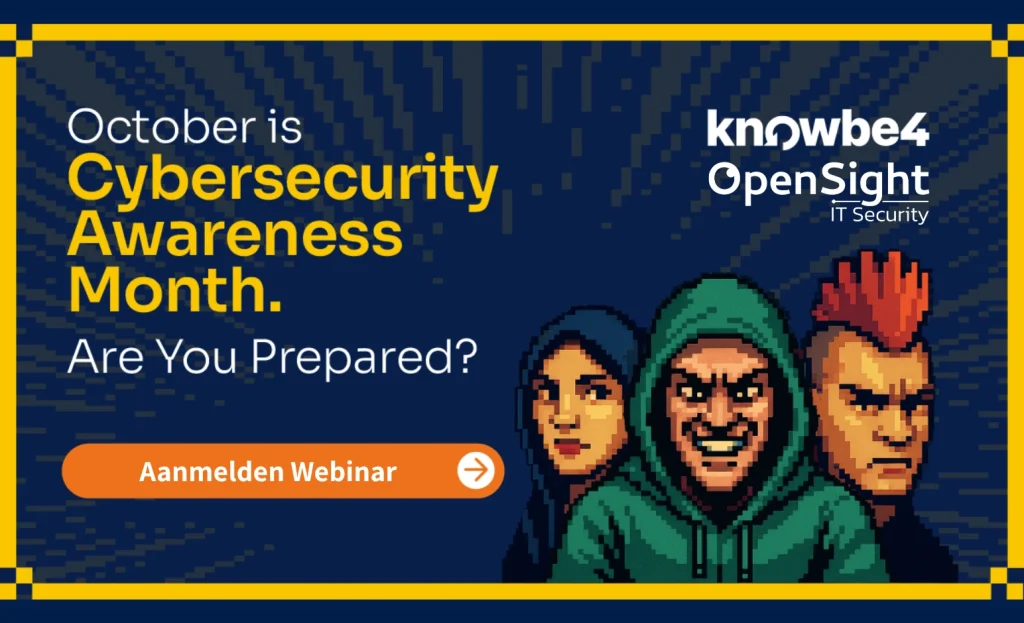Cybersecurity Awareness: Why a stand-alone training course is never enough

The digital threats that businesses face today are greater and more varied than ever before. Hackers are constantly developing new methods, from sophisticated phishing campaigns and ransomware to deepfake attacks and social engineering. The question is no longer whether your organization will be attacked, but when.
Although technical measures such as firewalls and antivirus software are important, they are only part of the solution. Cybercriminals are increasingly targeting the human factor: employees who click on the wrong link or respond to a suspicious request.
That’s why cybersecurity awareness is essential!
What does cybersecurity awareness mean?
Cyber awareness goes far beyond simply knowing that ‘hackers exist’. It is about developing a security-conscious workplace culture, in which employees:
- Recognize and understand risks (phishing, malware, social engineering).
- Know how to act safely in everyday situations.
- Staying alert even when the workload is high or the attack is subtly packaged.
Awareness is therefore not a one-off training course or checklist, but an ongoing process of learning and application.
The dangers of not paying attention to cybersecurity
Many organizations still underestimate the impact of untrained employees. Some facts:
- Human error accounts for 74% of all data breaches (according to recent security reports).
- Phishing remains the most popular method of attack: a single click can grant access to entire corporate networks.
- The financial damage caused by a single incident can quickly amount to tens of thousands of euros, not to mention the potential reputational damage and fines under the GDPR.
As you can see, even the strongest IT environment can be undermined by a single inattentive employee.
Why one cyber security awareness training is not enough
Many companies invest in an annual e-learning or one-off workshop. The problem?
- Information fades quickly without repetition.
- Cyber threats are constantly evolving, so what was relevant last year is now obsolete.
- Employees become less alert when there are no regular triggers.
Awareness only works if it is part of the company’s DNA: short, relevant and repeated training, supplemented with practical simulations such as phishing tests.

What does ongoing awareness look like?
A successful program consists of several layers:
- Regular micro-learnings: short training sessions linked to current threats.
- Simulations: such as phishing tests to see how employees react in practice.
- Campaigns: posters, videos and internal communications that keep the theme alive.
- Measure and improve: insight into click behavior, awareness scores and areas for improvement.
This makes awareness a cyclical process rather than an annual tick-box exercise.
The role of OpenSight and KnowBe4
At OpenSight, we believe that an organization can only be truly secure if people are part of the defence. That is why we work together with KnowBe4, the global market leader in security awareness.
What makes this approach unique?
- Access to a library full of training content, available in multiple languages and styles.
- Gamification and campaigns that really appeal to employees (like this year’s 80s arcade theme).
- Reports and metrics that show where risks lie and how they are reduced through training.
With this combination, we make security awareness fun, understandable and effective.
Cybersecurity Awareness Month
October is Cybersecurity Awareness Month worldwide. We are seizing this opportunity to raise awareness among organizations concerning the role their employees play. In collaboration with KnowBe4, OpenSight is organizing a free webinar in which we will take a closer look at:
- How to create support among management and employees.
- The latest cyber threats and how criminals operate.
- Practical ways to improve awareness structurally.
Cybersecurity is never “done”
As cybercrime never stops, neither can cybersecurity awareness. A one-off training course can create a false sense of security. In contrast, continuous programs build a human firewall that keeps pace with the times.
Would you like to know how you can achieve this in your organisation?
Register for our webinar during Cybersecurity Awareness Month and discover how you can structurally embed awareness in your corporate culture.



